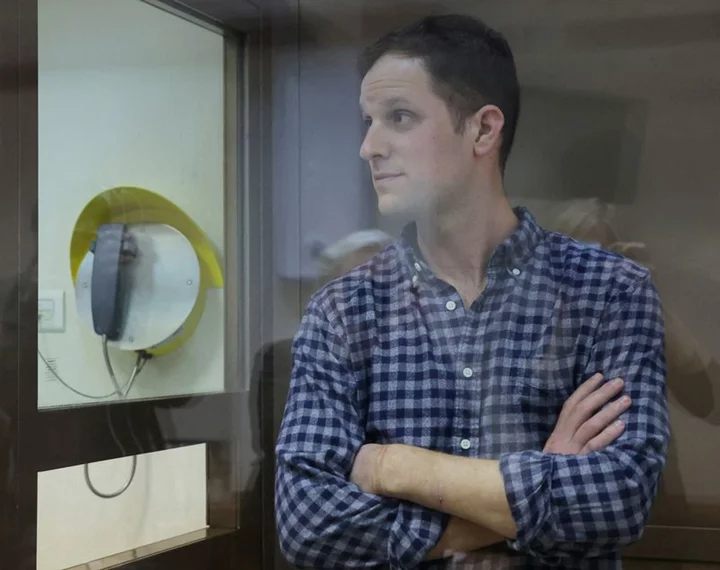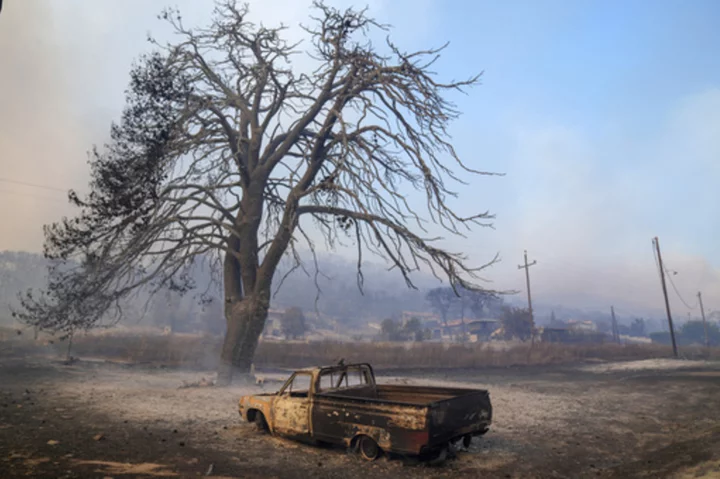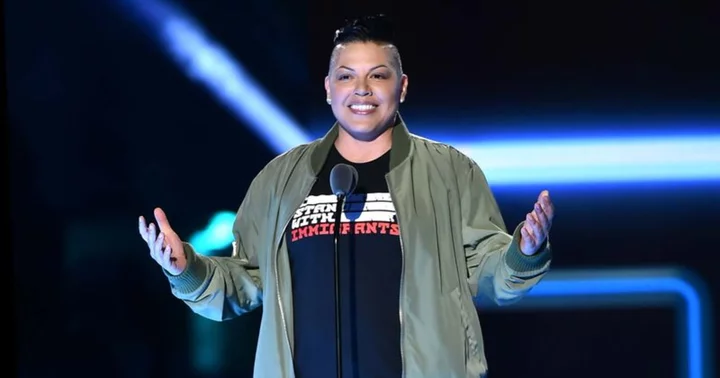By Patricia Zengerle
WASHINGTON (Reuters) -The U.S. House of Representatives voted unanimously on Tuesday for a resolution calling on Russia to release Wall Street Journal reporter Evan Gershkovich, who has been imprisoned in Russia for three months.
The vote was 422-0 in favor of the non-binding measure.
Gershkovich, a U.S. citizen, was arrested in March on espionage charges after Russia's FSB security service accused him of collecting military secrets in the city of Yekaterinburg. Gershkovich and his employer deny the charges.
He was initially remanded in custody until May 29, but a court last month extended his detention until Aug. 30.
The United States says he has been wrongfully detained and has called for his immediate release.
“We applaud this latest show of bipartisan support from Congress in the fight for Evan’s release. His wrongful detention is a blow to press freedom, and it should matter to anyone who values free society. We will not rest until he is free,” Emma Tucker, Wall Street Journal's executive editor, and Almar Latour, CEO of Dow Jones and publisher of The Wall Street Journal, said in a written statement.
The resolution does not have the force of law, but backers said it underscored the strength of support not only for the release of Gershkovich but also for other Americans and U.S. residents held in Russia, including Paul Whelan, who has been detained there since December 2018.
"I want to assure Evan's friends, his coworkers, and especially his family that I’ve met with, that we will continue our fight every day until we bring him home to you," Representative Michael McCaul, chairman of the House Foreign Affairs Committee, said in remarks urging support for the resolution.
The vote came as the Republican-controlled House resumed voting on Tuesday, after hard-right Republicans blocked votes for days as a protest over a debt ceiling deal between Republican Speaker Kevin McCarthy and Democratic President Joe Biden.
Gershkovich is being detained at a time when relations between Washington and Moscow are at the lowest point since the Cold War because of Russia's February 2022 invasion of, and U.S. support for, Ukraine.
(Reporting by Patricia Zengerle; additional reporting by Dan WhitcombEditing by Bill Berkrot and Lincoln Feast)









